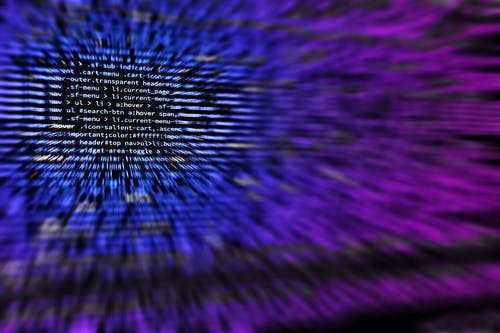Blockchain in law is a way to guarantee a fair outcome against bias and corruption.
Blockchain acts as a distributed database ledger for sharing the data among the nodes of a computer network. It is most likely to be called the technology that will change the next decade of business.
There are several reasons for adopting Blockchain in law. For example, excessive time spent while preparing, personalizing and maintaining law documents is reduced by using scripted text, intelligent contracts and management of automated agreements.
It stores the information in digital format electronically, which is best known for maintaining a secure and decentralized transaction record. It also guarantees fidelity and security of stored data, generating trust without a trusted third party.
What is Blockchain Technology?
A blockchain acts as a database which uses peer-to-peer network design and functions to create a distributed ledger of immutable transactions which can not be modified easily. One of the specific innovations of blockchain technology is that it enables participants across a network to reach mutual agreement and approve a block of transactions.
It is different from a typical database because of the way data is structured. For example, a specific database stores the data in a tabular form, whereas blockchain technology stores data in the form of blocks which are linked together.
The goal of blockchain technology is to record and distribute digital information in the form of blocks without editing features. It is also an immutable ledger, making it impossible to modify, delete and destroy any data.
According to statista, as of 2021, 45% of respondents stated that their companies were working on secure information exchange as a use case based on blockchain technology, making it the most popular use case of the technology
Blockchain in law
Blockchain technology makes it easy to create a shared ledger system where different parties can automatically report compliance data/documentation to the appropriate authorities. Furthermore, blockchain-based frameworks can automate various legal functions, including tax compliance.
Blockchain technology is fast emerging as a tamper-proof universal ledger known for its ability to store information in a fixed transparent ledger, offering law firms a higher level of precision. With blockchain technology, law firms are expanding their services further into the digital domain.
Blockchain technology affects law firms because of its distributed ledger that allows participants to trust the outcome of a system without trusting any individual participant. Both the blockchain and the law are, at their core, a mechanism of trust.
As blockchain advances and offers more significant potential to legal professionals and firms, understanding this technology tool and leveraging its capabilities will keep legal practices at the forefront of technology.
Using tech in law helps one keep information safe and secure, ensuring a fair and competitive marketplace for sellers and buyers.
Real-world Use Cases of Blockchain
Blockchain technology continued to bring advancements in laws for contract law and legal professions to prepare themselves for the impact of the legal framework. In addition, it democratizes access to the law, lowering legal fees with the digital automation process.
The development of Blockchain solutions is impacting law firms significantly, using it for their legal management strategies and daily operations. In addition, combining blockchain networking capabilities with legal expertise allows law firms to provide the legal authority organizations and companies require.

- Smart digital contracts: Lawyers spend most of their time administering and transferring information. But utilizing blockchain technology makes it easy to store any information digitally in clients’ trust ledger. As a result, any agreement can automatically be created without human intervention by creating a contract based on specific variables. Furthermore, since contracts can self-execute, intermediary roles and jobs that usually help to review contracts and execute them once all requirements are fulfilled have also improved.
- Handling evidence: The process of handling the evidence when it is collected and presented in a law court is termed a chain of custody. During this, many changes occur as evidence exchanges are handed over numerous times, making it challenging for the trial to record its movement and making defense attorneys claim that the evidence may have been falsified. Utilizing blockchain technology in the law allows tracking unique evidence tokens when received, storing them in a public/private blockchain ledger.
- Management of land deeds records: Maintaining land deed owners in any developing country is always challenging. But with Blockchain technology, a public blockchain ledger, it becomes easy for all the parties, whether government or land owners, to verify and keep the records of the land deeds and information related to their ownership and access. Moreover, it becomes possible for all the parties to access various details like the date when ownership is switched, its registration and its undeniable proof of ownership.
- Automated regulatory compliance: A blockchain-based framework provided by blockchain technology is used to automate numerous law functions by creating a shared public ledger where several individuals report their data and information automatically to appropriate official authorities.
- Maintaining public records: Government has to face many challenges while tracking and maintaining information about their citizens, such as their marital status, criminal activities, death and birth rate, unique identity, driving license and many more. Previously it was tough to manage these records, but maintaining and securing these public records has become very easy with blockchain technology.
- Provides evidence for first use: Blockchains are also ideal for proof of first use because of their irreversibility, security, and time-stamped nature. These are also used in applying patents, copyrights, and trademarks generated automatically for the best use of blockchain in the legal sector.
- Electronic signatures: Utilizing blockchain technology in the legal sector made the use of electronic signatures for the authentication process resulting in increased speed, efficiency and cost saving. In addition, blockchain also improves the manual tasks and high costs associated while coordinating and facilitating signature authentication.
- Lawyers’ compliance: Integrating blockchain in the law sector provides sufficient time for the lawyers to focus on important things instead of wasting time on manual documentation. The law profession is developing legal consulting policy formulation, legislative tracking, decentralized ledgers and legal research by utilizing blockchain resulting in improved compliance in law.
Conclusion
Blockchain in law is a way to guarantee a fair outcome against bias and corruption. Moreover, it naturally extends dispute resolution and governance because of its decentralization feature, providing input to law decisions rather than depending on individual third parties.
It offers numerous world changing opportunities in law firms. In addition, robotics and artificial intelligence may help answer some of modern society’s biggest questions. Using these modern solutions, law firms can perform routine tasks more efficiently and with less effort. There might be some reluctance in adopting this technology in law firms as it is still in its infancy, but in the future we will certainly witness its utilization in the legal sector.


Join the conversation!